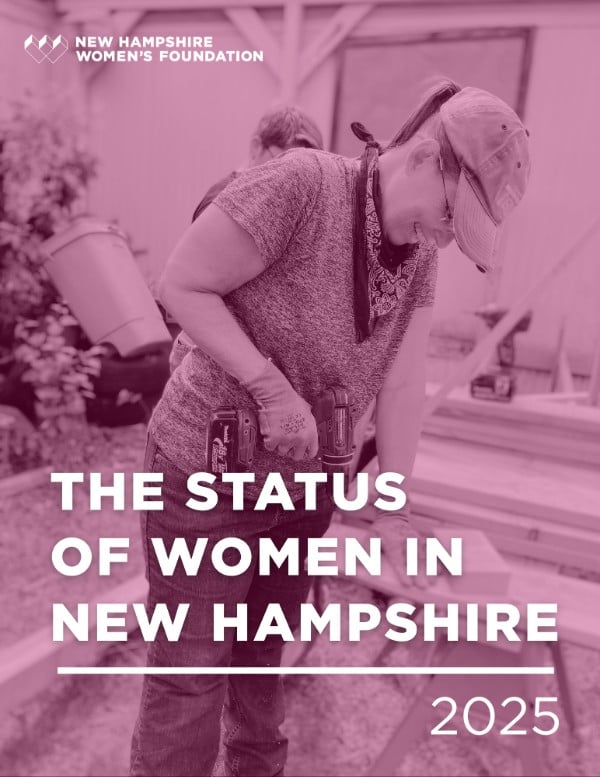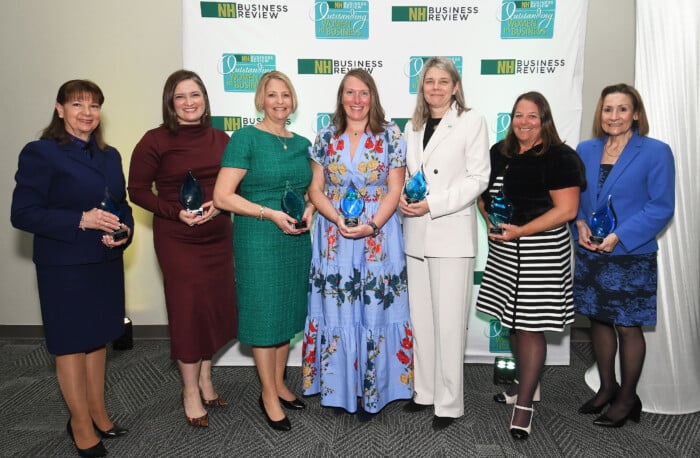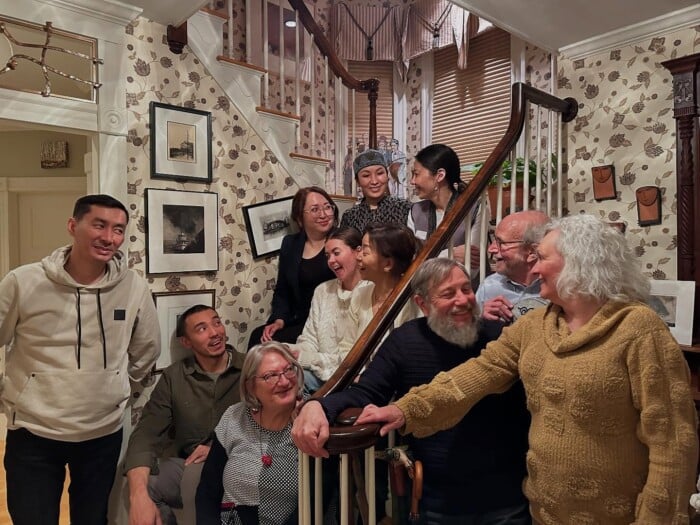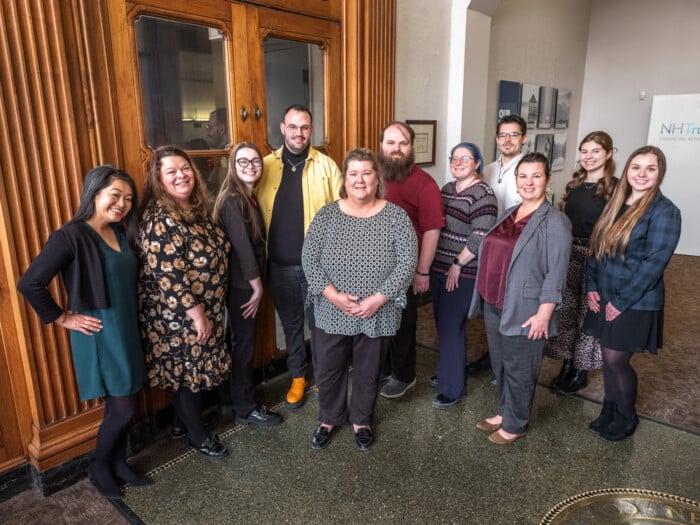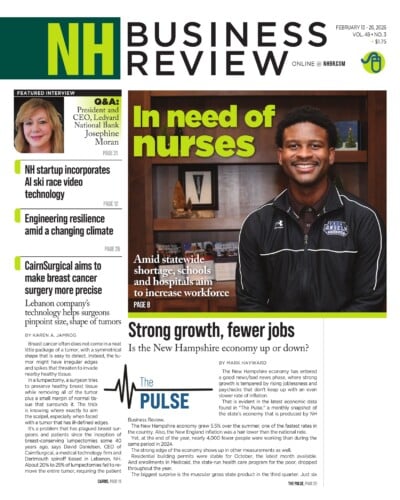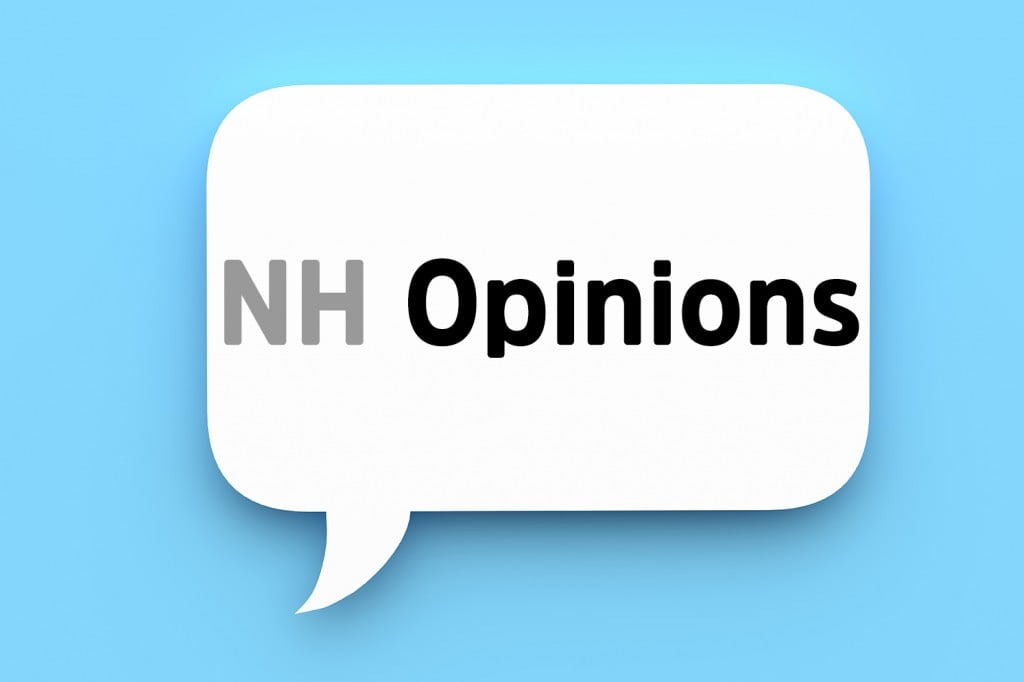New Hampshire’s high cost of living puts a disproportionate burden on women, particularly mothers, according to a new report published by the New Hampshire Women’s Foundation.
The Status of Women in New Hampshire 2025 stresses other gender inequities across the state: More than half of New Hampshire women are experiencing poor mental health; and women’s elected representation, while very strong at the federal level, decreases at local levels.
One of the biggest burdens on women is the high cost of child care, says the report, released Oct. 28. The yearly median cost of child care in the Granite State for an infant is more than $21,500, a cost that consumes nearly half of a single mother’s annual income.
Women who work full-time and year-round in New Hampshire earn 76 cents for every $1 men earn, a disparity known as the gender wage gap. In New Hampshire, as in all 50 states, women earn less on average than men.
“The women who work really, really hard, they are juggling multiple jobs, and their paychecks simply are not enough to keep up,” Betsey Andrews Parker said during a virtual press conference for the report’s release. “They’re trying to shuffle the deck chairs on the Titanic. They are really trying to make those choices to prevent the disaster, while the system that we have is sinking under the cost of rising food, heat, etc.”
Parker is the CEO of the Community Action Partnership of Strafford County, which offers a full range of programs and services for individuals experiencing low income.
“We are so thankful to have a report that gives us the data that we need so we can look at the trends and the impact of what’s happening,” Parker said. “That’s how we make our case for change.”
Another major takeaway indicates that women are more likely to suffer from mental health conditions: More than half of women are experiencing anxiety and a third are experiencing depression. The report attributes these numbers to unique stressors, which include a greater likelihood of experiencing sexual and domestic violence, a disproportionate burden of care for children and aging parents, and increased stress related to work and home responsibilities.
The final highlight pertains to elected representation for women. New Hampshire’s highest leadership roles are dominated by women, including both U.S. senators, one of the state’s two U.S. representatives and the governor. However, this trend reverses at the local level, and while school board positions are filled by a majority of women, roles like mayor, city council, and selectboard are held by men. In regards to municipal representation, 39% of towns have no women on their selectboard.
“The issue is that not as many women run in the first place,” said Devan Quinn, the foundation’s director of policy and coauthor of the report. Because of this, the foundation created Women Run, the only nonpartisan program in the Granite State to encourage and train women to run for state and local office. This year, 91 women participated in the program and 15 women are running in nonpartisan city elections next week.
“We know that regardless of party, when women serve, they’re more likely to support policies that benefit women and girls in their community,” Quinn said. “We also know that women in elected office are more likely to seek bipartisanship and compromise than their male counterparts.”
It’s important to note that disparities persist among women of color. According to the data, Latina and Hispanic women are twice as likely to live in poverty as White women. Furthermore, while only 33% of all New Hampshire state court judges are women, only two people of color serve as judges at any level of the NH state judicial system, and both are women.
“What’s unique about our research here at the Women’s Foundation is our gender lens,” CEO Tanna Clews said. “We know how vital data driven research is to gender equality, and we believe that accurate and comprehensive data must be the foundation for policies and laws that impact women and girls.”
Data for the Status of Women in New Hampshire is collected from a variety of sources, including the American Community Survey published by the Census Bureau. Other data sources involve state agencies, like the state departments of Health and Human Services, and Corrections, and nongovernmental academic and service organizations, including the UNH Institute for Health Policy and Practice and the New Hampshire Coalition Against Domestic and Sexual Violence.
“We also want to be clear that this report is limited to the data collected by our sources,” Quinn said. “Thus, we’re not able to report, in many cases, data that reflects gender expansive identities, inclusive sexual identities and self-determining race and ethnic identities. We strongly support policies and opportunities to expand that data collection to provide a more inclusive and understanding experience of women and girls in the state.”
When asked how this report – released into a political environment in which efforts to advance equity are often interpreted through a partisan lens – would be received, Clews championed the Women’s Foundation as a trusted source of data.
“We are proud to be a bold voice for women and girls,” Clews said. “And as I say often, being told that that is political should not keep us quiet.”
Read the report at nhwomensfoundation.org.

